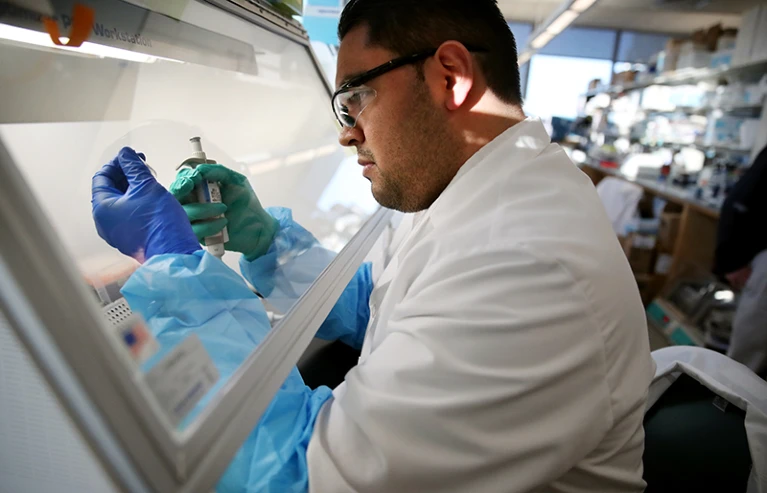
The following content originally appeared in Nature on 25 November 2022.
Although the COVID-19 pandemic isn’t over, the first victory in the fight against the virus came with the development of vaccines in record-breaking time. One of the first available was an mRNA vaccine developed by Moderna, a company based in Cambridge, Massachusetts, spun out of research by Harvard University biologist Derrick Rossi.
Moderna’s success was in large part down to its location, according to Noubar Afeyan who co-founded the company with Rossi, using funding from Afeyan’s venture-capital firm Flagship Pioneering. He told reporters in 2020 that the company was able to quickly attract hundreds of skilled local employees to ramp up production of the vaccine. “I don’t know where else you could do that,” said Afeyan. “Boston, Massachusetts, is, I would argue, the only place where this could have been developed.”Nature Index 2022 Science cities
Indeed, the Boston Metropolitan Area has long been a hub of biology research. Boston is ranked by Nature Index as the second-leading city in the world for high-quality publications in the life sciences, after the New York Metropolitan Area and ahead of the San Francisco Bay Area in California, in third. The three are also among the leading five cities more generally, as measured by Share, a fractional count of affiliated authorship in papers, across all the natural-science disciplines covered by the index, with New York second, Boston fourth and San Francisco fifth. They share the spotlight with the Chinese cities of Beijing, the leading metropolis by Share, and Shanghai, which comes in third.
This leadership is due to several factors. For one, the US cities’ density of high-quality universities, institutions and hospitals mean a critical mass of researchers for collaboration, as well as access to a large, diverse patient population for clinical studies. All three also have substantial financial support from government and attract major investment from industry and private capital. And all are areas, with diverse populations and an attractive quality of life, where people are eager to live.
“Greater Boston is a hub for research and development for the entire world, and the COVID-19 pandemic really is shining a light on that,” says Joe Boncore, a former state senator and chief executive of the Massachusetts Biotechnology Council, or MassBio, a not-for-profit consortium based in Cambridge that promotes the life-sciences industry. “Three major COVID vaccine makers have a footprint here,” he says.
Read the full story in the Nature Index.